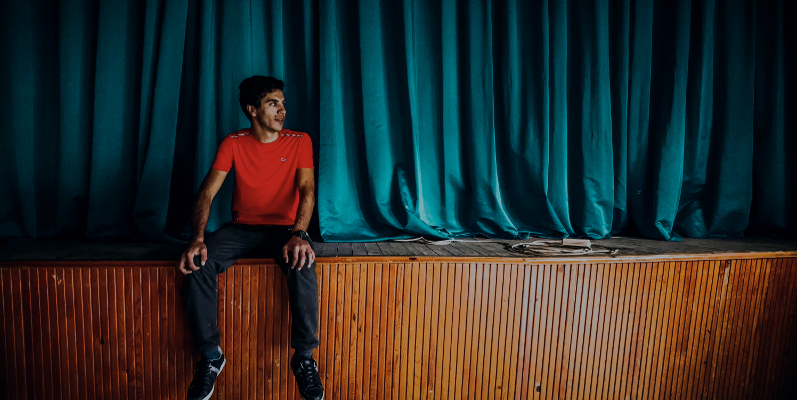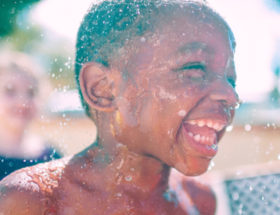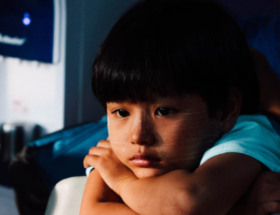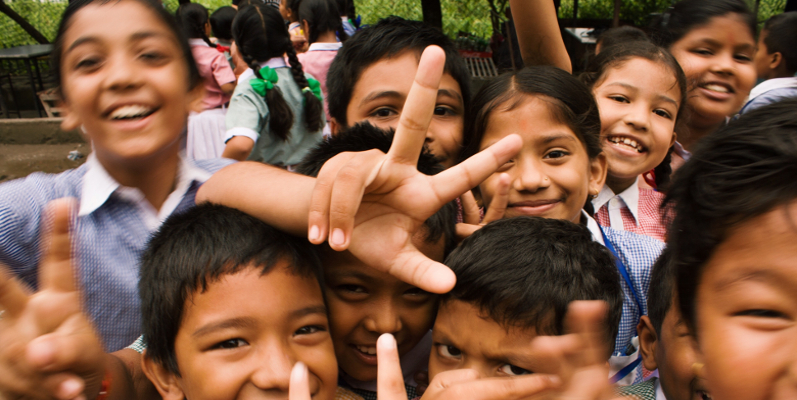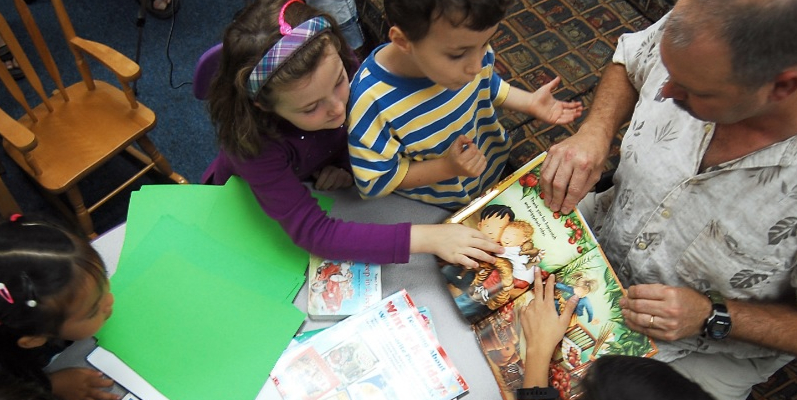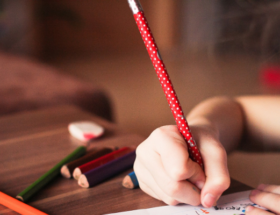It’s been months since I read Kelly Gallagher’s book, In the Best Interest of Students: Staying True to What Works in the ELA Classroom, but something he wrote there has hounded me ever since.
I want students to take the wisdom they encounter in the books they are reading and apply that wisdom to the world they will soon inherit. I want them to move beyond the ability to recognize theme or foreshadowing, and to consider how reading books makes them wiser as they approach adulthood.
Kelly teaches high school students. Kids in his classroom are only a few short years (or months) from taking on adult responsibilities. But can this idea also apply to younger kids?
I believe it can.
Why Kids Need Rehearsal for Real Life
Why does it even matter that kids might need rehearsal for real life? Because these real-life student stories have stuck with me over the years:
Kolby, five years old, talked to me often about his unemployed dad who drank (a lot). Kolby was living with Dad and his grandparents after his battered mom was admitted to a mental health services facility.
Brandon proudly identified with skinheads in his neighborhood. He was a 5th grader being cared for by his nineteen-year-old brother while Mom rode across the country with her truck-driver boyfriend.
Five 4th grade girls who joined me for lunch gave gut-wrenching answers to my naïve question, “Let’s get to know one another—who lives at your house?” Every one of those darling girls lived without a dad. I didn’t ask, but they talked candidly about their loss precipitated by prison or exile to Mexico, a fatal car crash or cancer.
Joseph, who had several years of information missing from permanent records, couldn’t help us fill in the blanks. He was one of those kids who was angry every day. He’s a twelve-year-old in a 4th grade classroom who finds it difficult to read.
Maurie was born to deaf parents. The oldest of four siblings, she was teased because her speech was delayed and during small group instruction she could barely read beginner picture books .
How in the world are these young ones supposed to navigate the painful bits of their childhood? What about the wealth and power of story all around them, at their fingertips? Teachers are in a perfect position to help kids find stories of other kids who have gone through similar heartaches in life and somehow survived.
Share Unforgettable Books with Relatable Themes
One of my obsessions is searching for great titles to read aloud or recommend to kids in hopes of connecting even one more child to a love of reading. Kids who have little access to books outside school need to be in classrooms flooded with great titles.
I’ll admit my infatuation with great books early on had mostly to do with entertainment value. That all changed about ten years ago when I read What Would Joey Pigza Do? by Jack Gantos.
Joey’s life is plagued with one challenge after another. His deadbeat dad shows up periodically and spars with his mom. Then things get really tough for Joey when his grandma dies. But through it all, he not only survives, he thrives. As I read Joey’s words to his mom near the end of the book, I thought of the kids I worked alongside and knew many of them needed what Joey had somehow learned on his own:
“Joey, I want you to move on,” she said. “Really, I do. But you don’t have to move on without
me.”
“I know,” I said, “but I don’t want to be like you and Dad doing the same scary stuff over and
over again. Dad goes in circles. You have your ups and down, and I just want to go forward.”
Joey’s words convinced me that kids who live in less than ideal situations need more than just entertainment from the texts they read. They must have the opportunity to read strong stories, learn from believable characters, and feel empowered to make choices that lift them above all the crap they deal with every day of their lives.
Provide Literary Connections that Resonate
Last week, I called my friend Kim—an instructional coach in our district and an excellent thinking partner—to talk about this idea of reading as rehearsal for life. She told me she reads a lot of books and works hard to choose titles with memorable themes. She recounted a list of books she’d read with her 4th and 6th grade classes some years ago. After a few minutes, she said, “Uh, all those books had themes about death and loss. I’m sure we read books with other strong themes, but those don’t stand out in my mind.”
Kim shared how her kids became adept at identifying themes, writing about them, and discussing big ideas in depth as a part of their own independent work. Students in her class made personal choices about books with themes that interested them, reading and then urging classmates to read those books, too.
She went on, “I can’t believe I read so many books to my kids about death, dying, and loss. That’s kind of weird. I wonder if I was drawn to those books when I was a teacher because I lost my dad to cancer when I was in 6th grade.” Kim told me that only a few months after her dad died, her mom saw Katherine Paterson in person and was able to get a signed copy of Bridge to Terabithia. Kim’s mom didn’t give her the book until several years later. “When she did, she told me that she’d gotten the book right after Dad died, and she knew that one day it’d be important for me to read it.”
Kim continued our conversation:
Thinking about this idea of reading to rehearse who you want to be or how you want to deal with life’s issues. Isn’t that what guides our selection of books we read now, as an adult? I read all kinds of middle grade and YA books because I want to be aware of what’s there. But when I read adult books, I usually read novels where the character deals with life events in powerful ways and then the whole time I’m comparing myself to that character. I can’t tell you why I do that or when I learned to do that. Does that come naturally to all readers? And if it doesn’t, then shouldn’t we model how to think that way as a reader no matter what [students] choose to read?
If, as adult readers, we choose books that help us process our own questions about life—isn’t it important for us to model that for our students? Don’t we want to take every opportunity to share a wide selection of texts in a variety of genres that show kids how other people (real and imagined) have faced challenges and made it through trying times?
It doesn’t stop there, though. We also want to show kids how to explicitly make connections between strong themes in books and the very real issues in their own lives. Lindsay Reyes shared this profound yet simple anchor chart to model for kids how readers can reflect on literary themes.
Being intentional about choosing books with relevant themes for kids is a genuine way for teachers to be life mentors for their students. Modeling how readers pay close attention to characters and then facilitating thoughtful discussions about big ideas and universal truths lets our kids gradually step into the theatre of real life with a caring teacher and supportive peers close at hand.

